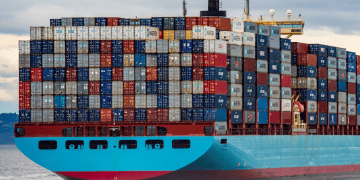Portugal’s economy witnessed a significant deceleration in the second quarter of 2024, according to recent data. The slowdown is attributed primarily to a notable decline in exports and domestic consumption, marking a challenging period for the country’s economic recovery.
The National Statistics Institute (INE) reported that the gross domestic product (GDP) increased by only 0.1% from the previous quarter, a stark contrast to the 1.6% growth observed in the first quarter. On an annual basis, the economy expanded by 2.3%, down from a 3.2% growth rate in the first quarter.
This sharp deceleration reflects broader economic pressures. The decline in exports, a critical component of Portugal’s economic activity, has been a significant contributing factor. Economic experts note that weaker demand from key European trading partners and global economic uncertainties have adversely impacted the export sector.
Additionally, domestic consumption, another vital pillar of the economy, showed signs of weakening. Rising inflation and higher interest rates have constrained consumer spending, exacerbating the economic slowdown. The INE highlighted that household consumption fell, underlining the challenges faced by Portuguese families amid the current economic climate.
The government has been monitoring the situation closely. The finance ministry acknowledged the slower growth but emphasized the resilience of the Portuguese economy. Officials pointed out ongoing efforts to stimulate growth through strategic investments and fiscal measures aimed at supporting businesses and households.
Economists have expressed concerns about the outlook for the remainder of the year. While some believe that the economic slowdown might be temporary, others caution that persistent inflationary pressures and potential global economic headwinds could prolong the period of slow growth.
The central bank’s recent actions to raise interest rates to combat inflation have added another layer of complexity to the economic landscape. Higher borrowing costs are likely to affect both consumer spending and business investment, posing additional challenges to economic recovery.
Despite these difficulties, some sectors have shown resilience. The tourism industry, a significant contributor to Portugal’s economy, has continued to recover, benefiting from increased travel and tourism activities. However, the overall economic environment remains uncertain, and policymakers will need to navigate carefully to sustain growth and stability.
In summary, Portugal’s economic performance in the second quarter of 2024 underscores the challenges posed by declining exports and domestic consumption. While the government remains optimistic about the resilience of the economy, the path to sustained growth will require careful management of both domestic and
global economic factors.
Stay on top of supply chain news with The Supply Chain Report. Enhance your international trade knowledge with free tools from ADAMftd.com.
#PortugalEconomy #EconomicSlowdown #ExportDecline #ConsumptionDrop #GDPGrowth #EconomicChallenges #InflationImpact #InterestRates #EconomicRecovery #PortugueseEconomy #Q2Economy #PortugalNews #EconomicTrends #FiscalMeasures #TourismRecovery















